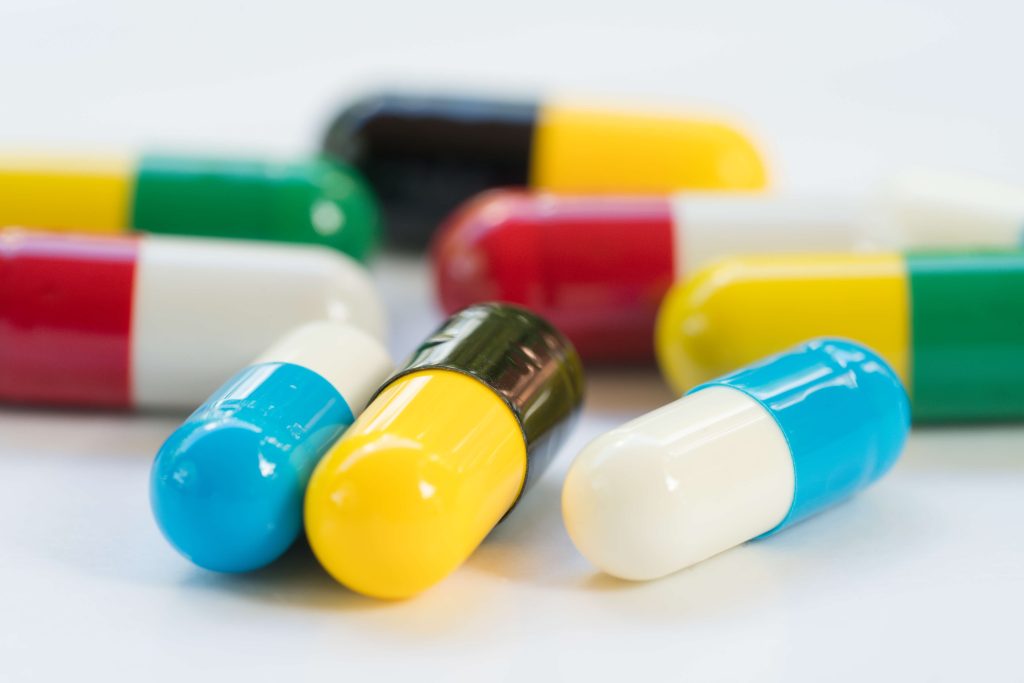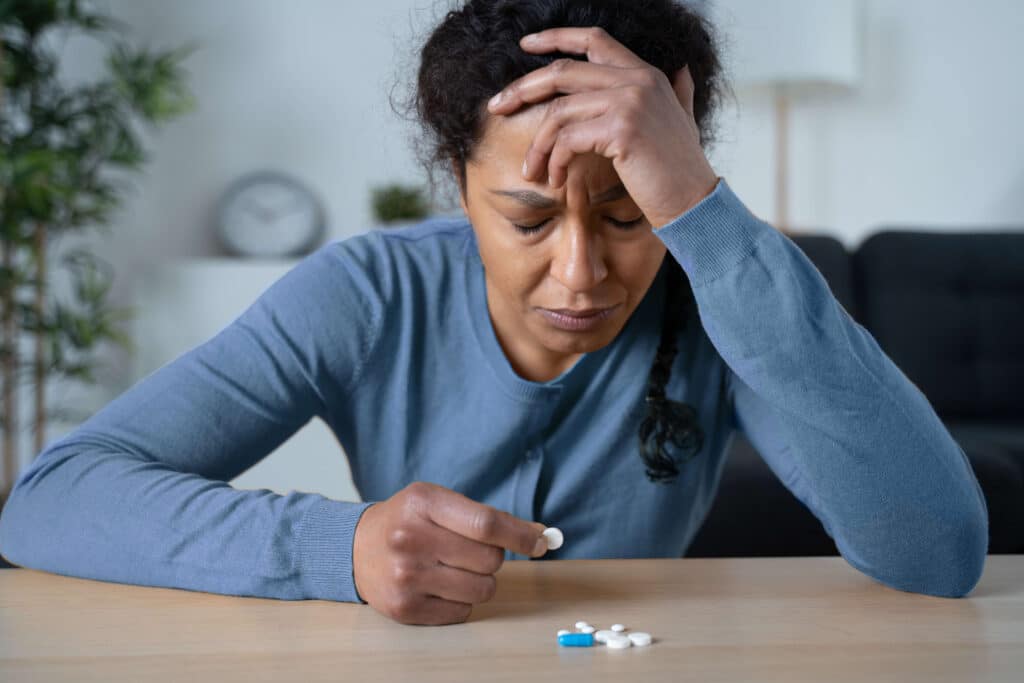Drug Misuse & Addiction
Drug misuse and addiction are serious public health concerns that impact millions of Americans each year. While drug use can start as experimental or recreational, repeated misuse can lead to addiction, dependence, and severe health consequences.
At Overland IOP, we are dedicated to helping individuals understand the dangers of drug misuse and providing the support and treatment needed for long-term recovery.

What is Drug Misuse?
Drug misuse occurs when a person uses prescription or illicit drugs in a way that is not intended. This can include:
- Taking a higher dose than prescribed
- Using someone else’s prescription medication
- Mixing drugs with alcohol or other substances
- Using drugs recreationally to achieve a “high”
While some individuals may misuse drugs without developing an addiction, repeated misuse significantly increases the risk of dependence and substance use disorder (SUD).
What is Drug Addiction?
Drug addiction, also known as substance use disorder (SUD), is a chronic disease that affects the brain’s ability to control drug use. Individuals struggling with addiction often:
- Feel an intense urge or craving to use drugs
- Continue using despite negative consequences
- Experience withdrawal symptoms when not using
- Prioritize drug use over work, relationships, and responsibilities
Addiction changes brain function, making it difficult to stop without professional help. However, recovery is possible with the right treatment and support.
Commonly Misused Drugs
Many substances can be misused and lead to addiction. The most commonly abused drugs include:
1. Opioids (Prescription Painkillers & Heroin)
- Includes Oxycodone (OxyContin), Hydrocodone (Vicodin), and Fentanyl
- Highly addictive; misuse can lead to overdose and death
- Over 75% of drug overdose deaths in the U.S. involve an opioid
2. Stimulants (Cocaine, Methamphetamine, Adderall, Ritalin)
- Increases energy and alertness but can cause paranoia, heart problems, and addiction
- Misused by students and professionals to enhance performance
Source: https://www.drugabuse.gov/publications/research-reports/misuse-prescription-drugs/what-classes-prescription-drugs-are-commonly-misused
3. Depressants (Benzodiazepines, Alcohol, Sleeping Pills)
- Slows brain activity and causes relaxation but can lead to overdose, coma, or death
- Alcohol is the most commonly misused depressant and is responsible for 95,000 deaths per year in the U.S.
Source: https://www.cdc.gov/alcohol/features/excessive-alcohol-deaths.html
4. Hallucinogens (LSD, Psilocybin, PCP, Ketamine)
- Alters perception and mood but can cause flashbacks, psychosis, and risky behaviors
Source: https://www.drugabuse.gov/publications/research-reports/hallucinogens-dissociative-drugs

Signs and Symptoms of Drug Addiction
Recognizing the signs of addiction is critical for early intervention. Some common signs include:
- Increased tolerance (needing more of a substance to feel the same effect)
- Neglecting responsibilities (work, school, family)
- Financial or legal problems related to drug use
- Mood swings, irritability, depression, or anxiety
- Withdrawal symptoms (nausea, sweating, shaking, cravings) when not using
If you or someone you love is struggling, seeking professional help can make all the difference.
The Effects of Drug Misuse and Addiction
Substance misuse does not only affect the individual—it impacts families, communities, and society as a whole.
- Health Risks: Chronic drug use can lead to liver damage, heart disease, respiratory failure, brain damage, and overdose.
- Mental Health Disorders: Many individuals with addiction also suffer from anxiety, depression, PTSD, or schizophrenia (dual diagnosis).
- Financial & Legal Consequences: Addiction can lead to job loss, financial ruin, arrests, and incarceration.
- Family Struggles: Addiction can strain relationships, leading to divorce, child neglect, and family trauma.
Source:
How Overland IOP Can Help
At Overland IOP, we specialize in outpatient addiction treatment that provides flexible and effective care for individuals struggling with substance abuse.
Our Treatment Programs Include:
✅ Dual Diagnosis Treatment – Addressing both addiction and mental health disorders
✅ Intensive Outpatient Program (IOP) – Comprehensive therapy and support while living at home
✅ Partial Hospitalization Program (PHP) – Structured day treatment for addiction recovery
✅ Medication-Assisted Treatment (MAT) – Using FDA-approved medications to ease withdrawal symptoms
✅ Cognitive Behavioral Therapy (CBT) & Dialectical Behavior Therapy (DBT) – Teaching coping skills to prevent relapse
✅ Individual & Group Therapy – Providing a strong support system for recovery
✅ Virtual Therapy Options – Making treatment accessible for those unable to attend in-person sessions


Start Your Recovery Today!
Addiction is treatable, and recovery is possible. If you or a loved one is struggling with drug misuse or addiction, you don’t have to face it alone. Overland IOP is here to help.
Take the first step toward a healthier, drug-free life today.
Published: February 06, 2025
Last Updated: August 24, 2025

Published: February 14, 2026
Medication-Assisted Treatment (MAT): How It Works?
Summary: Medication-assisted treatment (MAT) is an evidence-based approach to addiction treatment that combines FDA-approved medications with behavioral therapy and counseling to treat substance use disorders — primarily opioid and alcohol addiction. MAT is endorsed by the Substance Abuse and Mental Health Services Administration (SAMHSA), the National Institute on Drug Abuse (NIDA), and the World Health […]
Read more
Published: February 06, 2026
Talk Therapy: Types, Benefits & How It Works in California
Summary: Talk therapy — also known as psychotherapy — is a structured, evidence-based treatment approach in which a trained mental health professional helps individuals identify, understand, and change the thoughts, emotions, and behaviors that contribute to mental health conditions and substance use disorders. It is the foundation of treatment for depression, anxiety, PTSD, personality disorders, […]
Read more
Published: January 27, 2026
What Is DPD? Understanding Dependent Personality Disorder
Most people don’t ask, “What is DPD or Dependent Personality Disorder?” They come in feeling drained, anxious, and stuck in relationships that feel restrictive yet hard to leave. Being alone feels unsettling. Decision-making feels paralyzing. Reassurance becomes a daily necessity rather than a comfort. At Overland IOP in Los Angeles, we often see Dependent Personality […]
Read more
